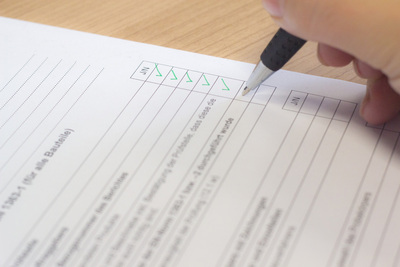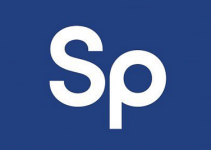 I’ve written numerous times recently about the issue of problem gambling and how the government wants bookmakers to do more to help the most vulnerable. Whether it be the decision to cut the maximum stake payable on Fixed Odds Betting Terminals or the government’s choice to do a u-turn on when that change would come into effect, virtually every move made in recent times has been one intended to curb the gambling industry’s influence over those that have issues with placing bets in a sensible and controlled manner.
I’ve written numerous times recently about the issue of problem gambling and how the government wants bookmakers to do more to help the most vulnerable. Whether it be the decision to cut the maximum stake payable on Fixed Odds Betting Terminals or the government’s choice to do a u-turn on when that change would come into effect, virtually every move made in recent times has been one intended to curb the gambling industry’s influence over those that have issues with placing bets in a sensible and controlled manner.
The bookmaking industry has responded by trying to get ahead of the game this time, volunteering to increase the levy it pays on its earnings from 0.1% to 1% over the next five years. It would give the government what it wants, which is more money to put towards helping problem gamblers, but do so on a timescale that is more suited to the bookmakers themselves and allow them time to adjust. That time is seen as important, given that the government’s decision to introduce the reduction on FOBTs maximum stake was shifted from October 2019 to April of that year after public pressure on the matter, hitting bookies hard.
Bookies Propose Increase to Voluntary Levy

As things currently stand, bookmakers pay a voluntary levy to the government of 0.1% of their gross overall returns. That amounted to £10 million in 2018, which is used by charities such as GambleAware to help problem gamblers with their addiction, as well as to educate others about the problem. At the time of writing, there are a handful of major gambling companies that have volunteered to make the change, which are as follows:
- William Hill
- Sky Bet
- Coral Ladbrokes
- Paddy Power Betfair
As things stand, they do not represent the entire industry but are amongst the biggest players. It is significant because William Hill, Ladbrokes, Coral and Paddy Power are the bookies that have physical properties and are therefore the ones that were most heavily affected by the change to the FOBT maximum stake.
Why They’re Doing It

Cynics believe that the bookies in question are volunteering to increase the levy that they pay for the simple reason that if the government forced them to do it they would almost certainly ask for more than 1% and would give them a much shorter timescale on when it needs to be in place by. There has been increasing pressure for campaign groups for the betting industry to do more to help problem gamblers, with those same campaign groups also putting pressure on the government over the issue.
The gambling industry has been working hard in recent times to get ahead of any requests the government might make of them. This is most notable with the recent decision by gambling chiefs to introduce a whistle-to-whistle ban on gambling adverts being shown on television during live sporting events that are on before the 9pm watershed. The industry has voluntarily decided to show no gambling adverts from five minutes before the start of a sporting event until five minutes after its conclusion if it is on the TV before the watershed, apart from in greyhound and horse racing coverage as those sports depend too heavily on money from betting.
Gambling Industry ‘On The Precipice’

The gambling chiefs behind the move expressed their decision in a letter written to the Department for Digital, Culture, Media and Sport that was seen by the BBC. They not only confirmed that they would increase the voluntary levy that they currently pay by 0.9% but also that they would do more in terms of looking at the ‘content and tone’ of the adverts they put on television and in the media. Yet the decision isn’t entirely altruistic, with the Gambling Commission suggesting that an extra £70 million per year is needed to help research problem gambling and give victims sufficient support and treatment.
The BBC was informed by an insider from the gambling industry that it was ‘on a precipice’. The fear from some within the industry is that it could go the way of the likes of the alcohol and tobacco industries, which were once big players in the world of sport’s advertisement but are now no longer allowed to advertise their wares during live sporting events in the United Kingdom. By working to ensure that young people and the most vulnerable are protected as much as possible, those within the industry are hoping that they avoid a similar fate befalling them.
Secretary of State ‘Encouraged’ By Industry’s Move
Jeremy Wright, the Secretary of State for the DCMS, informed the BBC that he and his department had been in contact with representatives of the gambling sector to discuss what more they could do to ‘help ensure people gamble safely’. He spoke of how he had hoped that the industry would ‘step up on social responsibility’ by funding research and treatment options for those with gambling problems.
Wright’s statement comes off the back of a report in the British Medical Journal that suggests that the true impact of gambling has been underestimated. There are in the region of 430,000 people with a ‘serious gambling problem’ in the United Kingdom, with that number closer to two million if you include those that are ‘at risk’ of getting addicted to gambling.
Labour Want A Gambling Ombudsman

Whilst the Secretary of State for the DCMS might be ‘encouraged’ by the moves made by the gambling industry, the Deputy Leader of the Labour Party, Tom Watson, believes that a gambling ombudsman is the best way forward. Speaking to the think tank Demos, Watson said that a Labour government would overhaul the gambling industry and betting legislation by introducing a new Gambling Act, referring to a number of scandals in recent years that gave the impression of the gambling sector being ‘predatory’ in nature.
Setting up an ombudsman for the industry would be just one part of Labour’s plan, with others including a desire to stop betting companies from being able to accept credit cards for deposits. Watson would like the ombudsman to form a ‘tripartite system’ with the NHS and the Gambling Commission to reduce problem gambling. Watson’s criticisms of the gambling industry are well-founded, with information coming to light in May of this year that bookies had ‘broken promises’ over the amount they said they’d give to GambleAware, which should have been £14.4 million, was reduced to £10 million and ended up being £9.6 million in 2018.
Tom Watson Looking at Licencing Overhaul
 The introduction of an ombudsman for the gambling sector isn’t the only proposal made by the Deputy Leader of the Labour Party in recent times. Writing for Politics Home, Watson made the suggestion that too many gambling licences had been issued without proper scrutiny being given to the companies that they were issued to. He wrote about how he’d been unfortunate enough to witness first-hand the damage done by gambling to members of his West Bromwich East constituency, where the high streets have been taken over by ‘clusters’ of betting shops. Watson believes that the gaming epidemic in the country is a ‘public health crisis’, with victims of gambling addiction often finding themselves in dept, lonely and even suicidal.
The introduction of an ombudsman for the gambling sector isn’t the only proposal made by the Deputy Leader of the Labour Party in recent times. Writing for Politics Home, Watson made the suggestion that too many gambling licences had been issued without proper scrutiny being given to the companies that they were issued to. He wrote about how he’d been unfortunate enough to witness first-hand the damage done by gambling to members of his West Bromwich East constituency, where the high streets have been taken over by ‘clusters’ of betting shops. Watson believes that the gaming epidemic in the country is a ‘public health crisis’, with victims of gambling addiction often finding themselves in dept, lonely and even suicidal.
He was quick to point out that he doesn’t want gambling banned in its entirety, but instead is keen to ensure that appropriate limits are put in place to ensure that gambling operators act in accordance with the licence issued to them by the Gambling Commission. He pointed out that operators can have ‘partnership brands’ offering websites on their ‘white labels’, which allow them to operate in this country on the original company’s licence without having to go through the process of applying for a licence themselves. Believing that the licences should be a hallmark of ‘credibility and trust’, Watson thinks all remote gambling licenses issued since 2014 should be put under review and the current register given a ‘total overhaul’.



